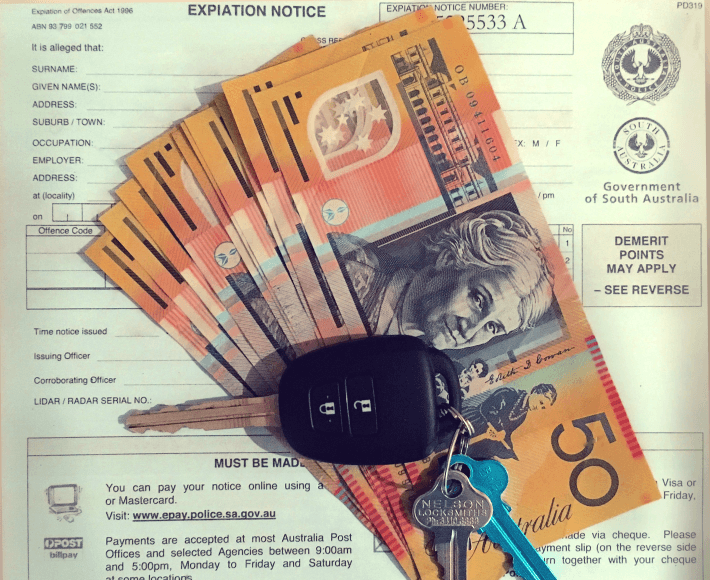OPERATION SAFE SPEED: SHOULD I PAY THE FINE?
October 29, 2016
Operation Safe Speed, a police campaign targeting speeding motorists, was conducted over a three day period in October 2016. During the operation, South Australian Police issued more than 1000 expiation notices for speeding, equating to around 14 notices issued for every hour of the Operation.
If you have been issued with an expiation notice for speeding, it’s important to know your rights.
Demerit points
Speeding fines attract demerit points. If you hold a full (unconditional) driver’s licence and you accumulate 12 or more demerit points in a three year period, you will lose your licence. If you hold a learner’s permit or are provisionally licensed, you will lose your licence after accruing four or more points.
Demerit points stay on your record for three years from the date of the offence.
While speeding fines are expensive, the impact of demerit points can be far worse. Losing your driver’s licence can turn your world upside down, affect your ability to earn an income and have severe consequences for anyone who depends upon you to drive them from A to B.
Legal options
If you have been issued with a speeding fine, you should consider your legal options.
Paying the fine
Simply paying the fine is often the quickest and simplest way to resolve the situation. But you must be fully aware of the consequences if you choose this option.
If you pay the fine, you will incur the demerit points for the offence.
There is simply no way to avoid the demerit points once you’ve paid the fine. The South Australian Government’s Expiation Branch does not have the power to reduce demerit points. While it does have power to withdraw an expiation notice on the grounds that it is “trifling”, in our experience this very rarely happens and should not be depended upon as a legal option.
If you are thinking about paying the expiation notice, we recommend that you first contact Service SAto check on your demerit points. This will help you to decide whether to pay the fine or to challenge it. If your licence will be disqualified as a result of paying the fine, that will narrow your options.
Seeking legal advice
Frequently, clients contact us once they have paid their fine and their licences have been disqualified for exceeding demerit points, only to find out that there is nothing that can be done. But if they had sought legal advice prior to paying the fine, they may have been able to take steps to avoid disqualification.
It’s important to understand that you must seek legal advice before the fine is due to be paid.
The only way you can avoid incurring demerit points is to elect to be prosecuted. Once the charge is in court, you can go to trial or you can plead guilty and ask for a reduction in demerit points on the grounds that the offence was “trifling” or that “proper cause exists” for reducing the points. These phrases have very specific legal definitions and you will need legal advice on how to proceed. A magistrate is the only person with the power to reduce demerit points. Our traffic law experts can give you advice about whether you are likely to succeed in such an application.
If you are unlikely to succeed, the only possibility of avoiding the demerit points is to go to trial. You may think that it is impossible to win a speeding trial if your speed was detected by a camera or hand held laser or radar, but people can and do get acquitted of speeding offences.
Websters Lawyers have excellent experience in challenging speeding charges. We were recently involved in a highly publicised Supreme Court case in which the judge found that the prosecution was unable to prove the accuracy of a speed gun. Without evidence that the device was accurate, prosecution couldn’t prove the charge and the driver was acquitted.
What if I don’t pay the fine?
You can’t just ignore the fine and hope that it will go away. If you fail to pay the fine on time and you don’t elect to be prosecuted, you will be deemed to have committed the offence and the demerit points will apply. This is known as Enforcement.
If the demerit points exceed your allowable points (11 points for a fully licensed driver, three for a learner or provisional driver), then you will be disqualified from driving and be sent a disqualification notice.
Disqualification notices must be acknowledged before they take effect. If you ignore a disqualification notice (having already ignored the fine), your licence can be suspended for non-payment of the fine.
The period of the suspension is added to the disqualification period. For example, you get a speeding fine that attracts three points and you don’t pay the fine. That fine will go through to Enforcement and the points added to your total. If the total number of points exceeds your allowable points then you will be disqualified. If you still don’t pay the fine and you don’t acknowledge the disqualification, then your licence will be suspended for non-payment of the fine. Once you have paid the fine, you must still acknowledge the disqualification and then serve the full disqualification period for exceeding demerit points. In other words, failing to acknowledge a disqualification notice will not avoid the disqualification; it will only delay it.
If you don’t believe you committed the offence alleged, or you are concerned about the impact of demerit points, we recommend that you speak to a traffic law expert about your legal options.
There are significant ramifications for paying expiation notices and you need to be aware of them before you pay the fine. The good news is that excellent legal help is available. Contact one of our traffic law experts for a free first interview to discuss the options available to you.


